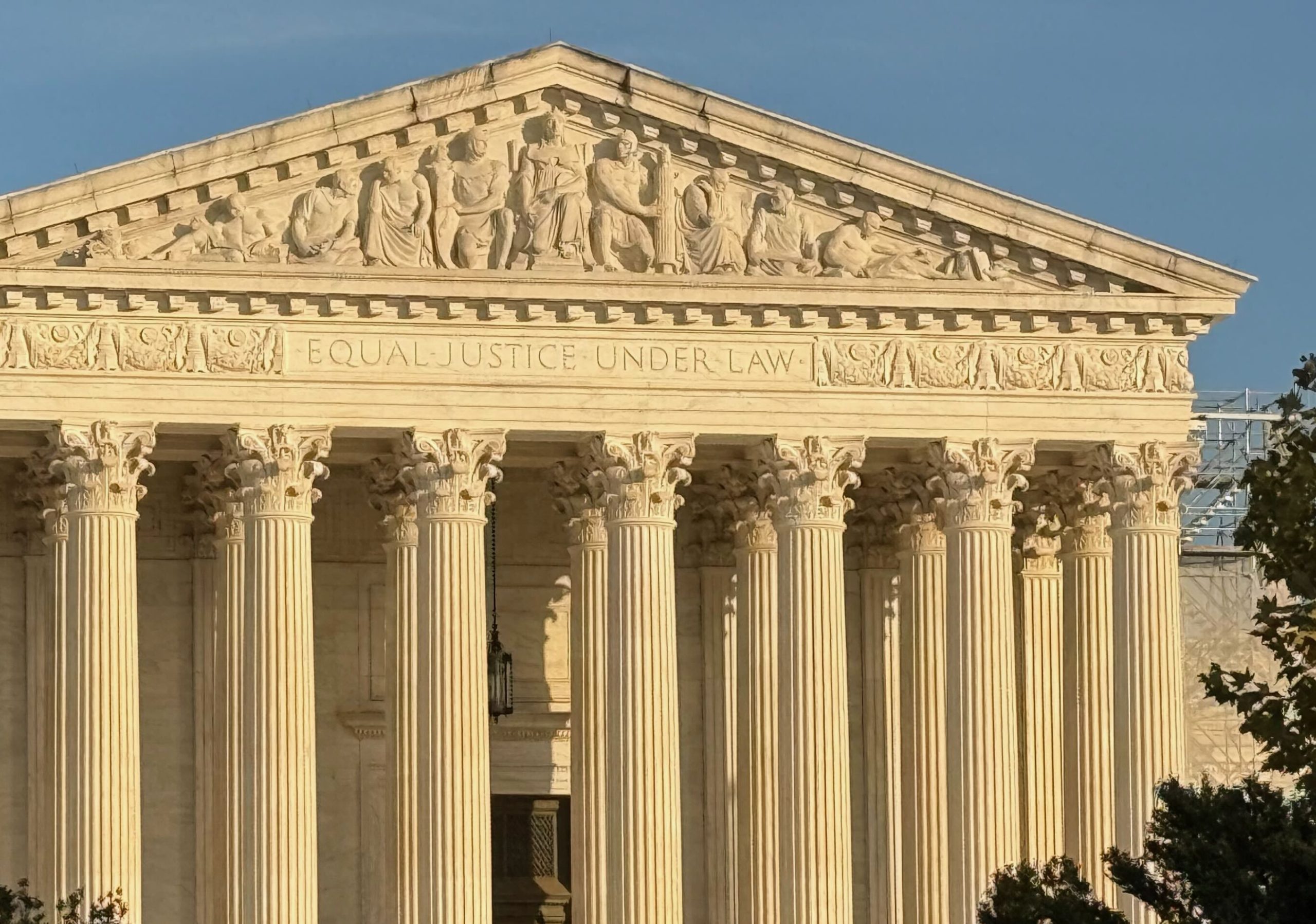
[ad_1]
SCOTUS NEWS
on Jan 13, 2025
at 6:56 pm

The justices issued orders out of their personal convention as scheduled on Monday morning. (Katie Barlow)
The Supreme Courtroom on Monday declined to listen to a problem to Maryland’s handgun licensing regime, in addition to a pair of circumstances searching for to carry oil and fuel firms liable for injury brought on by local weather change. The announcement got here as a part of an inventory of orders launched from the justices’ personal convention on Friday. The justices granted three circumstances from that convention on Friday afternoon, and they didn’t add any further circumstances to their docket for the 2024-25 time period on Monday.
The justices denied evaluate in Maryland Shall Difficulty v. Moore, during which gun-rights teams and gun house owners challenged Maryland’s requirement that the majority residents get hold of a license earlier than shopping for a gun. They argued that as a result of state legislation already requires them to bear a background test to purchase a gun, the license requirement (which incorporates one other background test and a gun-safety course) imposes too heavy a burden on their proper to bear arms.
The U.S. Courtroom of Appeals for the 4th Circuit upheld the legislation final yr. It pointed to Justice Clarence Thomas’s opinion for the court docket in New York State Rifle & Pistol Affiliation v. Bruen, during which he indicated that legal guidelines requiring gun house owners to bear background checks or full gun-safety programs will usually be constitutional below that call’s new Second Modification take a look at.
The justices didn’t act on a petition searching for evaluate of a ruling by the identical appeals court docket upholding Maryland’s ban on assault rifles. The court docket will take into account the petition in Snope v. Brown once more on Friday, Jan. 17.
The justices additionally denied evaluate in Sunoco v. Honolulu and Shell v. Honolulu, a pair of circumstances searching for to carry oil and fuel firms liable for their position in elevated fossil gas consumption and greenhouse fuel emissions, which led to local weather change-related property injury in Honolulu.
In June, the justices requested the Biden administration to weigh in on whether or not federal legislation bars the oil and fuel firms’ state-law claims; in a short filed in December, U.S. Solicitor Basic Elizabeth Prelogar urged the justices to disclaim evaluate. Prelogar advised the justices that (amongst different issues) presently the Supreme Courtroom lacks the facility to evaluate the Hawaii Supreme Courtroom’s choice permitting the lawsuit to go ahead.
Justice Samuel Alito didn’t take part within the Honolulu circumstances. Though he didn’t clarify the rationale for his recusal, the monetary disclosure varieties that Alito filed in 2023 indicated that at the moment Alito owned shares in three of the vitality firms concerned within the circumstances.
The court docket requested the federal authorities for its views in 4 new circumstances:
- Fiehler v. Mecklenburg, a dispute over land possession in Alaska that hinges on whether or not a state court docket has the facility to right a federal surveyor’s location of a water boundary.
- Borochov v. Iran, during which the justices have been requested to determine whether or not the Overseas Sovereign Immunities Act’s “terrorism exception” to the overall rule of immunity for international governments in U.S. courts offers U.S. courts the facility to listen to claims that come up from a international state’s materials help for a terrorist assault that injures or disables, however doesn’t kill, its victims.
- FS Credit score Corp. v. Saba Capital Grasp Fund, involving whether or not Part 47(b) of the Funding Firm Act, which regulates funding firms like mutual funds and exchange-traded funds, creates a non-public proper of motion.
- Port of Tacoma v. Puget Soundkeeper Alliance, during which the justices have been requested to determine whether or not a provision of the Clear Water Act permits personal residents to go to federal court docket to implement state-issued pollutant-discharge permits that impose extra stringent requirements than the act requires.
This text was initially revealed at Howe on the Courtroom.
[ad_2]